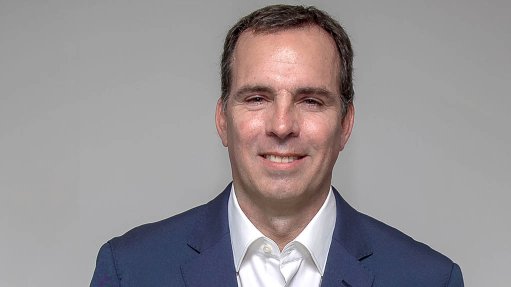Smart Geysers: The Loadshedding Solution That Empowers South Africans
This article has been supplied.
By Mark Allewell of Sensor Networks
In a bid to minimise South Africa’s ongoing loadshedding woes, Eskom has announced plans to install ‘smart’ meters in homes across the country. According to Electricity Minister, Kgosientsho Ramokgopa, these tools will enable Eskom to remotely monitor and control South Africans’ geysers, in order to reduce the pressure on the national grid.
There are an estimated 8 million households accessing the power grid, which account for approximately 16% of Eskom’s installed capacity, reaching up to 35% during daily peak times. Of this, the geyser average power demand is around 10%. With this in mind, this R16 billion Demand Side Management (DSM) project will allow the utility provider to disconnect customers that exceed what Eskom determines as responsible usage. This will be done in the event that these customers fail to reduce their excess load during these peak times by switching off the appliances that draw a lot of electricity.
“The goal of this DSM initiative is to ‘flatten the curve’ of peak consumption and drive positive behaviour change which, in turn, will alleviate loadshedding,” explains Mark Allewell, CEO and Founder of Sensor Networks – a local energy focused smart-home company that produces an innovative smart geyser controller and is also working with geyser manufacturers to produce a stand-alone smart geyser. “South Africans fear that installing the Eskom smart meter will enable the government to switch off their hot water at any time, removing their autonomy.”
Smart geysers put the power back in your hands
“At a time when some South Africans feel increasingly disempowered, we believe an alternate, long-term solution for moderating electricity consumption should come in the form of remote geyser management”.
Allewell strongly believes that this is the real solution to the problem and that individuals should have the ability to self-regulate. “The smart geyser controller provides access to real-time data for informed decision making. It allows the homeowner to control their geyser via an app,” he adds, pointing to the thousands of homeowners who have already installed these smart geysers in their homes, across South Africa. “Out of a sample set of 5 000 of our customers, close to 50% currently use the app to actively manage their water heating schedule”.
Almost a million geysers are sold annually, and Allewell believes that if each of these could be managed remotely, then South Africans could help to “shift” 10% of the load on the grid (i.e. meet the peak-time demand for electricity with power produced and stored at a different time of the day).
“Smart geyser controllers offer homeowners numerous benefits - from reducing electricity consumption and energy bills by about 35%, to improving loadshedding resilience by enabling the homeowner to optimise their geyser heating schedule outside of the loadshedding peaks,” he explains. “This is critical, given that the geyser is the largest single consumer of energy in the household, accounting for about 40% of the monthly energy bill in a typical South African household.”
The advantages of smart geysers extend past just control – they empower homeowners by providing them with visibility on the condition of their geyser, as well as its performance and function. This aids in the monitoring and maintenance of a geyser, in turn, minimising the homeowner’s insurance risk profile. For insurance companies, the reduced claims for burst or faulty geysers is a significant win.
“Pertinently, we found that geysers have a healthy lifespan of about seven years, and then suffer electrical issues, leaks or they burst and flood homes. The resultant insurance claims run into the thousands – if not tens of thousands of Rands per claim,” explains Allewell.
He adds that Sensor Networks developed the smart geyser controller technology in response to demand from insurance companies seeking to reduce claims for burst or faulty geysers. Real-time notifications of events – such as a leak or an electrical fault – are shared directly with the homeowner and their insurance provider, enabling swift repairs and maintenance, and simplifying the claims process.
Geysers not only account for a significant proportion of home electricity demand, adding to the strain on our power grid; they also cost insurers and homeowners billions in insurance claims. “Smart geyser technology presents a simple solution to these problems,” reiterates Allewell.
“Insurance companies see the value in the risk reduction and the energy savings that we deliver to customers, so much so that some are already subsiding smart geyser installations and hardware. This is coupled with new customer value adds, such as a zero-excess policy for homeowners who have installed the smart geyser device,” he adds.
A plea to the public sector
“Beyond simply being able to shut off a meter, we need to rely on data to make better-informed decisions,” says Allewell.
“At a time when load-shedding remains a daily reality for all South Africans, the collective savings we could achieve by implementing top-quality smart-geyser devices – not just in terms of energy costs, but also in terms of home insurance – cannot be understated,” he concludes. “The faster South Africans can take control of their own electrical consumption, the less likely it will be that Eskom and government will need to manage it.”
Comments
Press Office
Announcements
What's On
Subscribe to improve your user experience...
Option 1 (equivalent of R125 a month):
Receive a weekly copy of Creamer Media's Engineering News & Mining Weekly magazine
(print copy for those in South Africa and e-magazine for those outside of South Africa)
Receive daily email newsletters
Access to full search results
Access archive of magazine back copies
Access to Projects in Progress
Access to ONE Research Report of your choice in PDF format
Option 2 (equivalent of R375 a month):
All benefits from Option 1
PLUS
Access to Creamer Media's Research Channel Africa for ALL Research Reports, in PDF format, on various industrial and mining sectors
including Electricity; Water; Energy Transition; Hydrogen; Roads, Rail and Ports; Coal; Gold; Platinum; Battery Metals; etc.
Already a subscriber?
Forgotten your password?
Receive weekly copy of Creamer Media's Engineering News & Mining Weekly magazine (print copy for those in South Africa and e-magazine for those outside of South Africa)
➕
Recieve daily email newsletters
➕
Access to full search results
➕
Access archive of magazine back copies
➕
Access to Projects in Progress
➕
Access to ONE Research Report of your choice in PDF format
RESEARCH CHANNEL AFRICA
R4500 (equivalent of R375 a month)
SUBSCRIBEAll benefits from Option 1
➕
Access to Creamer Media's Research Channel Africa for ALL Research Reports on various industrial and mining sectors, in PDF format, including on:
Electricity
➕
Water
➕
Energy Transition
➕
Hydrogen
➕
Roads, Rail and Ports
➕
Coal
➕
Gold
➕
Platinum
➕
Battery Metals
➕
etc.
Receive all benefits from Option 1 or Option 2 delivered to numerous people at your company
➕
Multiple User names and Passwords for simultaneous log-ins
➕
Intranet integration access to all in your organisation




















